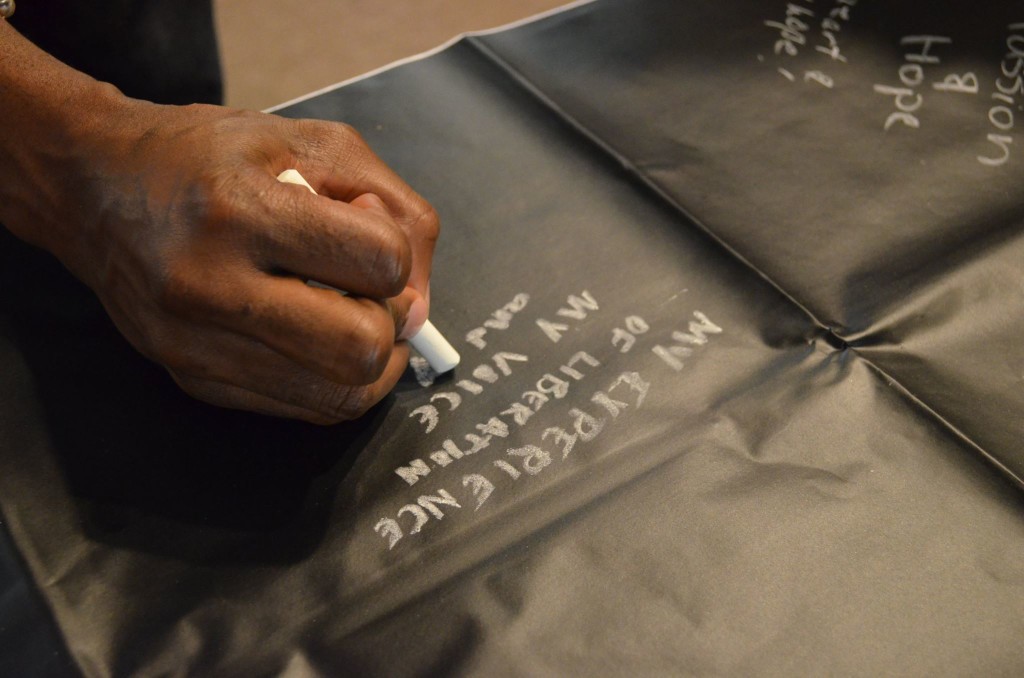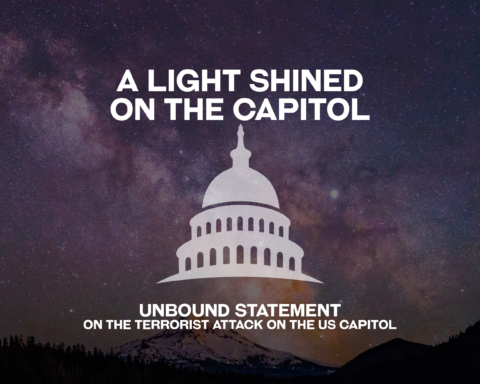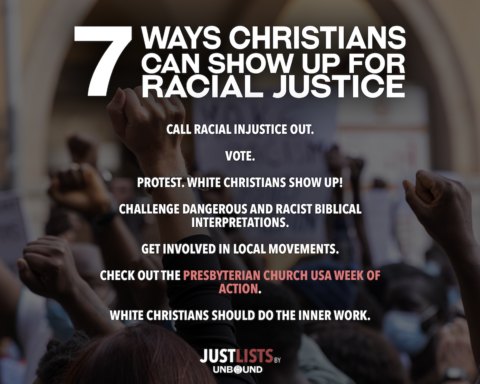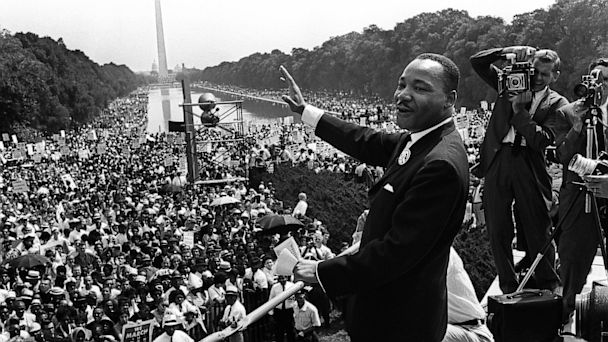Antiracism Conversations at the Congregational and Denominational Levels

I am the Lord, your Holy One,
the Creator of Israel, your King.
Thus says the Lord,
who makes a way in the sea,
a path in the mighty waters,
who brings out chariot and horse,
army and warrior;
they lie down, they cannot rise,
they are extinguished, quenched like a wick:
Do not remember the former things,
or consider the things of old.
I am about to do a new thing;
now it springs forth, do you not perceive it? – Isaiah 43:15-19a
If there was an official ‘Presby-nerd card’ I would be issued one in a heartbeat. A third generation child of the church, now a servant of the church in professional ministry, I have been involved in more planning teams, gatherings, and committees than I can count most days. I really love the church.
Because of this love I have spent the majority of my life thus far doing what I can to build up the PC(USA) in whatever way God allows. This dedication has been an investment for my whole family who have sacrificed time with me in order for me to be a part of this work. I say this because I want you to know I enter the conversation as one who is dedicated to the survival of the church. I am also one who believes that all of us are going to have to make sacrifices in order to make sure the church survives. I do not take the call to serve lightly.
I love the church, but I am troubled.
___________________________________________
We hope, but we are not always convinced that the church is ready to have these hard conversations.
___________________________________________
As a friend of mine said recently (and snarkily), “How many times are we going to have a conference around the ‘new thing’ God is doing?” I laughed because it is true. We use this passage from Isaiah for conference propaganda and inspiration over and over again. And it works. I want to be a part of any ‘new thing” God is doing! I yearn for more light in dark places, for my cup to overflow, for my chains to be free, for life to be more abundant, for deeper dedication to God’s work. The kicker for me is the second part: “Do you not perceive it?” Oh, so I have to do something?

Hmmm.
Let me tell you a little of my own story. After many years serving a church in Salt Lake City, UT, I accepted the call to Director of Spiritual Formation at Fairmount Presbyterian Church in Cleveland, OH, knowing it was time for a personal and professional change. God delivered, and we got change all right!
My family and I have done what we can to acclimate to the culture and ways of our new home. At first we missed all of the comforts of familiarity – knowing where to buy things, where to eat, how to get around, etc. But fast-forward a year, and we now spend more time talking about what we were missing out on living in Utah! Particularly, we were missing the diversity of thought, culture, and people of color.
Don’t get me wrong – Utah will always be a wonderful place to call home. However, the diversity we have gained since our move has enriched us in ways we couldn’t have even imagined. It has heightened our awareness of our own place in the world as a family of blended race, culture, and skin color – and how we choose to operate in our community.
It is my hope that the PC(USA) is in the middle of a similar process of transition.
___________________________________________
I am the only person of color on program staff. This is not intentional on the part of the congregation, and this is not the first church I have served where this is the case.
___________________________________________
You see, while my little family was experiencing our transition the majority-white Church was starting to have conversations about race. Some of this conversation has sprung out of the growing unrest in the nation in response to events in Ferguson, Baltimore, South Carolina, and my new home of Cleveland. Town after town has come to a rolling boil as citizens are faced with the realities of racial injustice in our nation.

When I first came to Fairmount, I asked what conversations had been had in the church about Tamir Rice. Silence. Not because folks had not been affected; in an event like Rice’s shooting, the entire community is to some extent affected. No one could really explain the church’s silence on the matter, though the folks I spoke with agreed that conversations on race were needed.
Around this same time, I was introduced to the work of Crossroads Antiracism Organizing and Training when Jessica Vazquez Torres came to facilitate conversations with the General Assembly Nominating Committee around the Culture of Dominance in the church. Her methodology, personal testimony, and gracious/open-handed approach were transformational for everyone involved.
I came back from that experience and went directly to our head of staff, urging that we bring Jessica to Fairmount.
I think it is helpful at this point to note that I am the only person of color on program staff. We have persons of color in administrative and custodial roles in the church, but to my knowledge, I am one of the first program staff members who is a person of color. This is not intentional on the part of the congregation, and this is not the first church I have served where this is the case. In Utah, Oregon, and now Ohio, the situation has played out the same. As a whole, our churches are not diverse.
___________________________________________
Many white leaders in the church are taking the right steps, wanting to lead, and yet still needing to be led.
___________________________________________
This sets up an interesting dynamic when it comes to conversations about race and racism. As these conversations arise, I become an unintended lobbyist. Some folks make the assumption that, as a person of color, I must the primary instigator of the conversation. And it is true that in this case and many others, I do instigate these uncomfortable but important conversations. Even as my white colleagues do their best to support these efforts, they are at a disadvantage. It’s hard to lead a conversation that they are still navigating themselves. Many white leaders in the church are taking the right steps, wanting to lead, and yet still needing to be led.

In light of this dynamic, we decided to have Jessica come facilitate and train our staff a month before we had her come work with our congregation. It was helpful. We started processing and opening ourselves up to the conversations so that we could be better-equipped and ready to help help lead conversations with the congregation the following month. This time also moved us to start imagining how Fairmount, our own congregation and community would approach the conversation.
In the weeks between the staff training and the congregational training, the head of staff used suggestions from Jessica to lead an adult education class on “The Culture of Dominance”. This class was heavily influenced by the work of Allen G. Johnson and his book Privilege, Power, and Difference. This book is a fantastic starting point for those wanting to honestly engage in the conversation. In the chapter asking “What can we do?” Johnson writes:
The problem of privilege and oppression is deep and wide, and to work with it we have to be able to see it clearly so that we can talk about it in useful ways. To do that, we have to reclaim some difficult language that names what’s going on, language that has been so misused and maligned that it generates more heat than light. We can’t just stop using words like racism, sexism, ableism and privilege, however, because these are tools that focus our awareness on the problem and all the forms it takes. Once we can see and talk about what’s going on, we can analyze how it works as a system. We can identify points of leverage where change can begin.
Of course, the reality is that this is not a conversation that can be addressed by a month of adult education and a Saturday workshop. But it is a start.

Jessica came for the whole weekend. Current ruling elders and deacons were invited to an evening primer the night before the congregational workshop. They were able to begin wrestling with the conversation and locate themselves within it. The next morning, 70 people gathered. We engaged in thoughtful and informative dialogue. At times it flowed easily, and at other times the room was tense. Our congregation is fairly representative of the majority of Presbyterian churches: we have some members who are people of color, but overall we are not very racially diverse. I say that not as a criticism to those who showed up but rather to point out that even among well-intentioned people who are willing to faithfully engage in these conversations, we are often missing a critical witness to the current situation: the voices of people of color. It is important to know when the conversation remains incomplete. We the church (big C and little c) are still working on that.
Before recent events in this nation stirred the pot for racial justice, our denomination was initiating some of its own conversations. In June of 2014, the National Racial Ethnic Ministries Task Force recommended that the moderator of the 221st General Assembly convene a church-wide conference on race, ethnicity, racism, and ethnocentricity. The outcome of this referral was a diverse gathering of almost 50 participants from throughout the PC(USA). Participants were mid-council leaders, parish pastors, community organizers, professors, ruling elders, church members, and national staff. We were Middle Easterners, African Americans, Asian Americans, Native Americans, White People and Hispanics/Latinas/Latinos. I was honored to be a participant in this gathering.
While all of us were thankful that this conversation was being initiated, many of us were unsure if what difference gathering would make. We hope, but we are not always convinced that the church is ready to have these hard conversations. Time and time again, we have watched as the Church has chosen to take on other (important!) issues, continuing to deferred conversations on race and racism in the life of the Church. Yet, we showed up…50 of us.
___________________________________________
For so many years we’ve kept wandering, busying ourselves with other things, easier things. God keeps trying to “do a new thing” in our midst – will we now finally perceive it?
___________________________________________
We grounded our time in Bible Study focusing on the book of Acts, lead by Dr. Eric Barreto. The Book of Acts portrays differences as good, clean and right. We asked: Can the church welcome people as we are? Can people of color be seen as a gift instead of a problem?

We listened to Dr. Jennifer Harvey, whose book Dear White Christians speaks to moving from a framework of reconciliation to one of repair, noting that reconciliation is only effective in problems between two equal groups. In the present state of our society, white people and people of color do not come to the table as two equal groups.
As the discussion continued, it became evident that the Spirit was and is at work. For so many years we’ve kept wandering, busying ourselves with other things, easier things. God keeps trying to “do a new thing” in our midst – will we now finally perceive it?
This summer, a report that grew out of this gathering with practical and challenging recommendations will come before the 222nd General Assembly. It is time.
___________________________________________
Thankfully, God has not and will not give up on us.
___________________________________________
The recommendations of this report include developing a study guide focused on the history of Presbyterian participation in and the resistance to patterns of racism and structural inequality, reviewing practices of the agencies of the PC(USA), and holding regional conversations on race. They include requiring more widespread translations of PC(USA) resources and newsletters, requiring anti-racism training for leaders on all levels of the church, promoting more effective cross-cultural relationships, repudiating the Doctrine of Discovery addressing racial and cultural sensitivity in ordination exams, and, if you can believe it, much more.

It’s a tall order, to be sure. However, if we can find the courage to start implementing these recommendations, we can begin to address entrenched patterns, postures, processes, practices and positioning that have created spaces of inequality, frustration, and divisiveness. As a gathered group we want to work with the church, expand our capacity to live out Christ’s call to love and that these conversations, actions and policies are necessary for the church NOW.
Thankfully, God has not and will not give up on us. I believe that God has plans for the PC(USA). Plans that have to do with repair, revelation, and re-claiming Christ as our partner in this work. To quote from the original referral item 09-14: “We must be honest with one another, we must acknowledge the historical context and wounds that have shaped and continue to shape the way we are, they way we do church, and especially the way we interact and engage different people.”
I will make a way in the wilderness
and rivers in the desert.
The wild animals will honor me,
the jackals and the ostriches;
for I give water in the wilderness,
rivers in the desert,
to give drink to my chosen people,
the people whom I formed for myself
so that they might declare my praise. -Isaiah 43:19b-21
May this be so!
*****
AUTHOR BIO: Amy Kim serves as the Director of Spiritual Formation at Fairmount Presbyterian Church in Cleveland Heights, Ohio. She is an enthusiastic, creative, and thoughtful woman always open to new opportunities to support and sustain the life of the Presbyterian Church (U.S.A.). Amy Kim, along with her husband Justin, children Natalily and Isaiah enjoy life together in Ohio learning new things everyday about living it the mid-west.
Read more articles in this issue Call to Confession: Race, White Privilege and the Church!






Unbound Social